Today, we’re going to dive into “is food addiction real?” by looking at the evidence on food addiction.
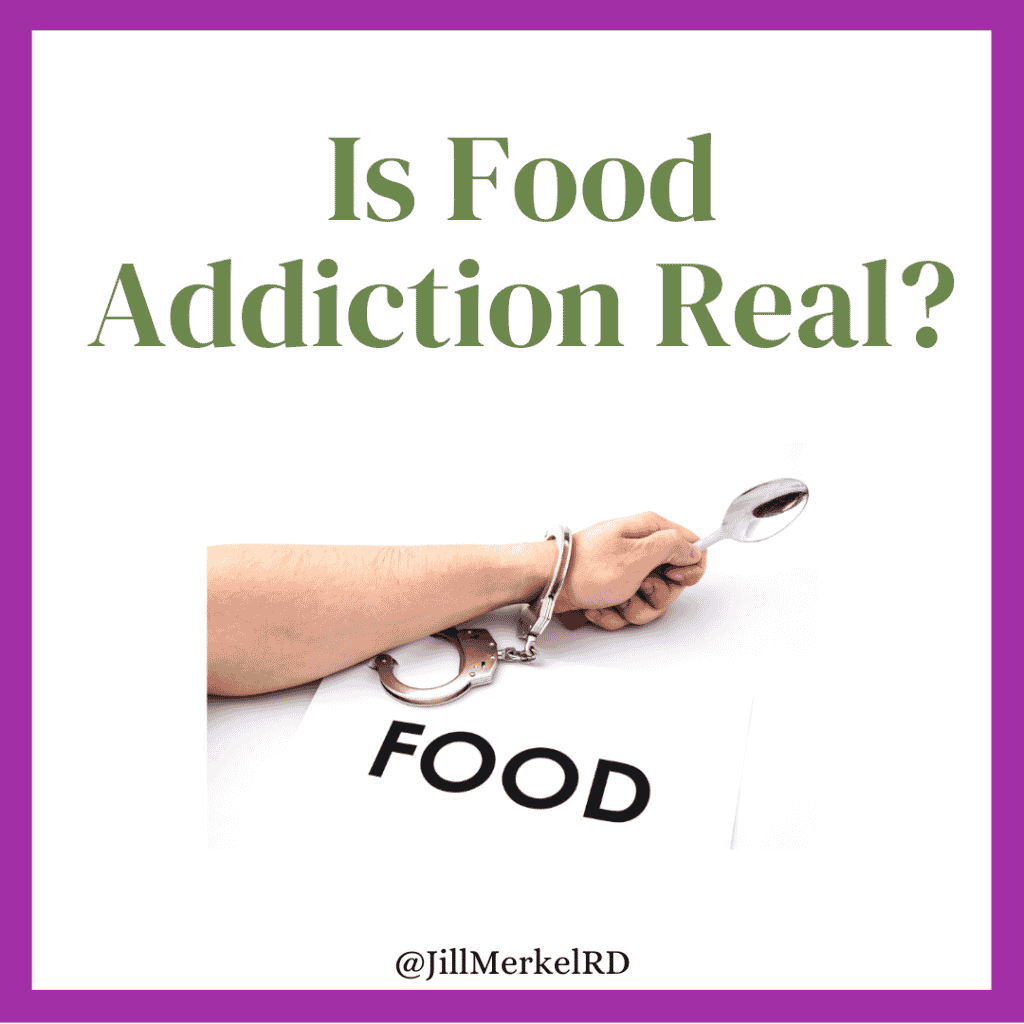
In case you missed it… What is Food Addiction?
Remember, if you feel addicted to food (obsessed, out of control, cravings, overeating, bingeing, etc.), that is completely valid and real.
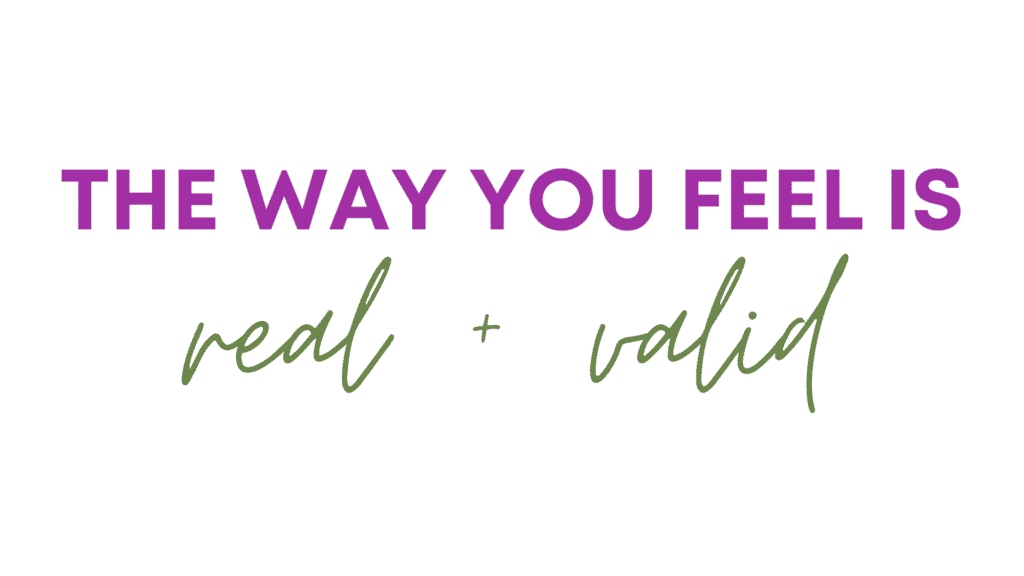
Is Food Addiction Real?
A quick Google search for “food addiction” brings up a LOT of results (273 MILLION, to be exact) with most being things like:
- Symptoms of food addiction
- How to stop your food addiction
- Treatment for food addiction
- Etc.
So if you’ve felt this way or maybe googled this yourself, you are NOT alone!
Diet culture preys on your vulnerability and tries to sell you a “fix”.
Why?
Because fear sells! And diets sell! They just don’t work.
Again, the way you feel is real and valid, but as of current, there is ZERO scientific literature or research to support the idea of being addicted to certain foods.
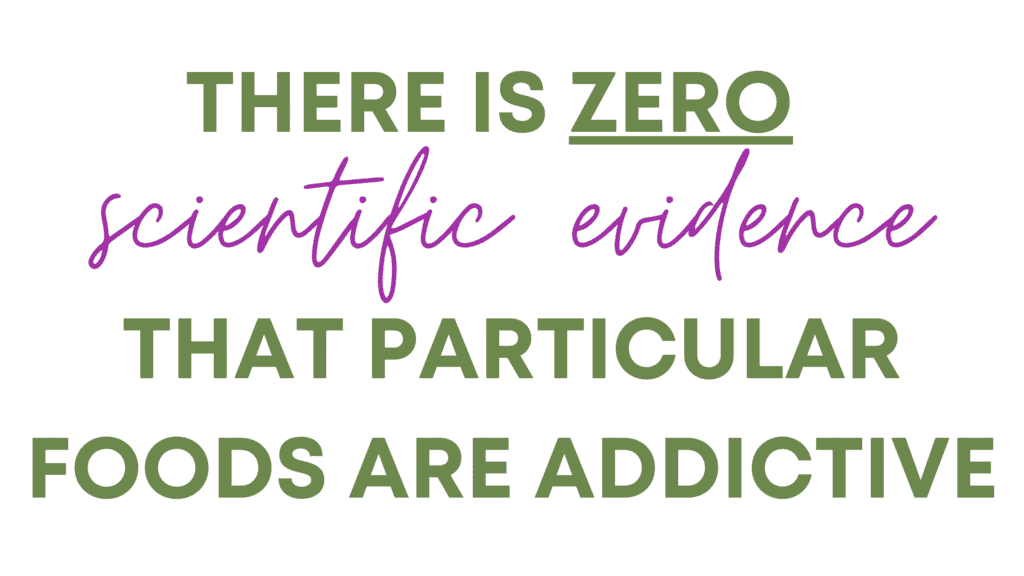
Let’s take a look at the evidence on food addiction.
Is Food Addiction Real? – The Evidence
This study from 2014 found that participants with the lowest risk for cardiovascular disease (CVD) consumed an amount of sugar equivalent to eating some sweetened foods at every meal and snack AND having dessert every day.
But the media took this study and created headlines such as “sugar kills” and made people think they needed to consume ZERO sugar in order to decrease their risk of CVD. That was NOT the case!
Another 2014 study found that when consumption is corrected for overall energy intake, sugar itself has no effect on body weight.
And there is no direct evidence that sugar causes an increase in appetite, decreases satiety, or causes diabetes.
This 2015 study looked at the data and found that most long-term studies can only demonstrate associations (meaning x is associated with y), not causation (meaning x causes y).
Again, the media makes us think that x (in this example being sugar), causes y (in this example being poor health). That’s just not true! There are too many other factors to consider that research studies cannot control for.
They found “little evidence to support sugar addiction in humans, and findings from the animal literature suggest that addiction-like behaviours, such as bingeing, occur only in the context of intermittent access to sugar.”
This means that, even in rats, addiction-like behaviors, such as bingeing, occurred only when their access to sugar was limited. This goes back to the restrict – binge cycle we’ve previously talked about.
Remember, diet culture likes to demonize certain foods in order to make us feel bad about eating them, and then tries to sell us a “fix” or “cure” for this supposed problem.
But guess what?
Food is meant to taste good and to be enjoyed!
That is normal and natural and should not be demonized.
Additionally, the research on humans is limited, inconclusive and inconsistent. We need more research studies on humans to be done to prove any true food addiction.
Another major problem is that there is no formalized definition of food addiction. So what does it even mean? What are these studies measuring? Are they even looking at or measuring the same thing? That’s a problem.
And humans are far more complex than lab rats in a controlled environment. Most of the time, humans are not eating sugar in isolation, it is in combination with other things. And lots of behaviors to account for such as restriction, dieting history, eating disorders, access to food, etc.
And finally, the Yale Food Addiction Scale that is often seen as the gold standard for evaluating and measuring food addiction doesn’t account for food restriction or eating disorders. So it often overestimates the number of people being flagged as having food addiction, when in fact they may just be struggling with restriction, disordered eating or an active eating disorder.
So, is food addiction real?
Some food for thought – can you be addicted to something necessary for survival?
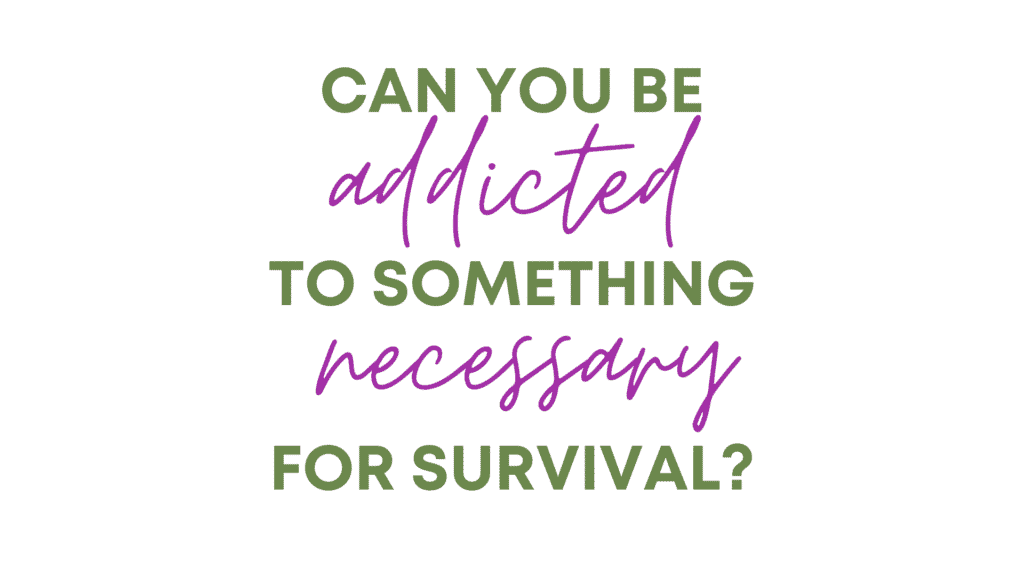
Have you ever thought you’re addicted to water or air?
Your body needs food and carbs (sugar) every day (probably more than you think thanks to diet culture). Feeling like you need or want these foods is normal. It’s not an addiction.
So rather than trying to “fix” this “problem” (food addiction) by abstinence or restriction, what if we treat the underlying behavior (restriction) rather than the substance (sugar/food).
Is food addiction real? – Conclusion
It truly is the restriction, again this may be mental or physical restriction, that leads us to feel addicted and out of control around food which often leads to overeating.
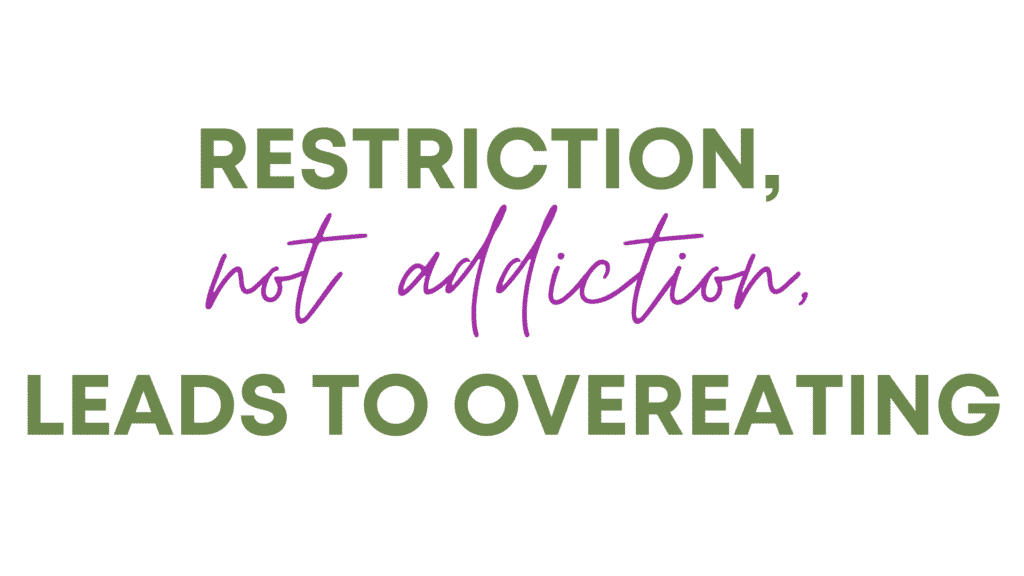
So if you feel that you are addicted to food, please know there is HOPE! You CAN repair your relationship with food.
Stay Tuned & More Resources
Stay tuned as next time we’ll talk about how to repair your relationship with food, what steps to take to begin making peace with food, and how Intuitive Eating can help with feelings of food addiction.
In the meantime, if you are struggling with food obsession, feelings of food addiction, or otherwise feel distressed about food, exercise, or your body, submit a no-obligation inquiry into working with me one-on-one and I’d love to help!
If you feel like thoughts around food and your body are all consuming, download my FREE guide – 5 Steps to Stop Obsessing About Food and Your Body

